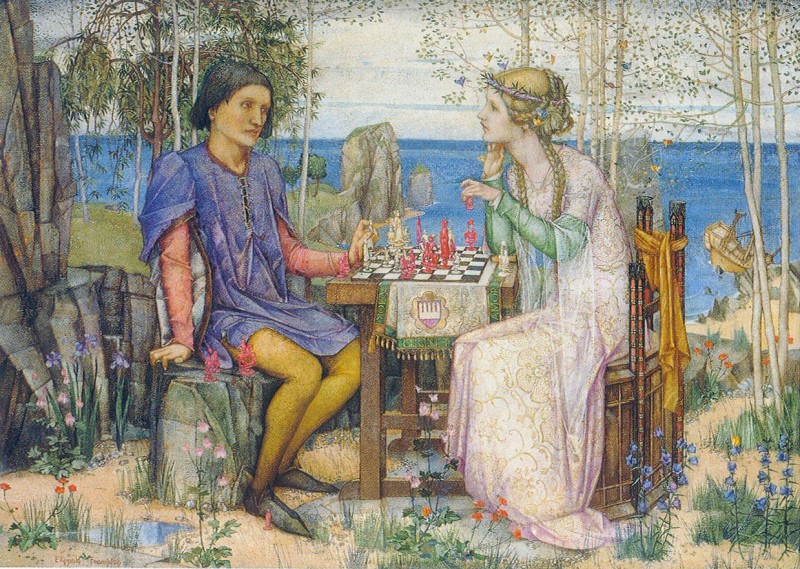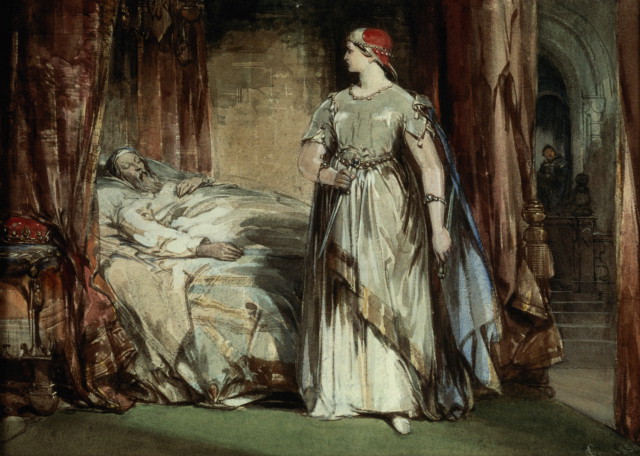He was very good at waiting. It was something that he’d been doing all his
life, in one way or another. His mother
once told him that he’d kept her waiting for more than three weeks before he’d
made up his mind to be born, so perhaps that had helped to set his life in its
apparently inevitable course. Like
Micawber, he had a definite idea that one day something worth having would turn
up, and in the meantime he was prepared to wait. There seemed little point in taking hasty
action to move things along.
His career choice, if it could be called
that, was wholly appropriate. Here he
was, in white shirt, black waistcoat and bow tie, waiting at table in a small,
unfashionable restaurant that was just about staying in business. Tonight he was the only waiter on duty, which
did not matter all that much, given that there were hardly any diners.
It suited him, this un-busy lifestyle, as
it gave him plenty of time to indulge his only hobby, which was the reading of
great literature. He was not a
particularly fast reader, but that did not bother him. He was prepared to wait for a plot to unfold
or a character to develop. Not for him
the rush to the last page and the final denouement. A great book was like a fine wine or a
gourmet meal, to be savoured and lingered over rather than swallowed at a gulp.
Over in the far corner, a middle-aged
lady had had enough time to study the menu and was looking around for someone
to take her order. He made sure that he
could not be spotted easily and let her wait a little longer before he drifted
over to her table.
He wrote her order down, slowly. He saw no reason for haste – he had all
night, even if she didn’t. Fortunately,
she seemed to be of a similar mind. She
had caught the mood of this place and soon came to realise that she was
probably in for a long night. This
restaurant was relaxed with a capital R. There was no point in rushing things.
“What’s the book?” she asked. He had stuffed it inside his waistcoat when
he had decided to stop reading and take her order, and the book was difficult
to miss as he stood at her table.
“Chaucer”, he said, “The Canterbury
Tales. In the original Middle English”.
“I’m impressed”, she said. “It’s not what
I would have expected a waiter to be reading”.
“I’d better get your order in”, he said.
“But come back when you’ve done so”, she
called after him. “I’d like to talk”.
The lady must have been well into her
50s. He’d waited a long time to get
chatted up while at work, and he could have hoped for somebody a little
younger, but it was a quiet night and a little conversation would not be
unwelcome. So he did what she asked.
“So what do you make of Chaucer?” she
asked. “A bit heavy-going, surely? And
please sit down – you’re giving me a crick in the neck”.
So they sat and talked about Chaucer, as
he went back and forth between her table and the kitchen to fetch her
meal. She asked him what he thought made
Chaucer a great writer and what he liked and disliked about him. She asked him about his favourite tale, and
about how he reckoned Chaucer might have got on had he been living today.
“And you?” she said, “What’s your tale?”
“I haven’t got one”, he said.
“Come on – everyone’s got a tale to
tell. So why are you a waiter in this
place when you’ve got enough brains to be reading Chaucer and to know what
you’re reading? What are you – 30 or so?
Why haven’t you made a better go of your life than you have?”
“I’m waiting”.
“I know. I can see that.”
“No. I mean that I’m waiting for my
brother to give me what I’m owed”.
“I’m intrigued”, she said. “Tell me
more”.
"My parents died in a plane crash about
five years ago. They hadn’t made a new
will since just after my elder brother was born, more than 35 years ago. My
father often said that he would sort things out so that I would benefit as well
as my brother, but he never got round to it. And I wasn’t all that bothered, because my brother said once that he’d
see that I was OK in any case, so that’s how things stayed. Legally, I’m not entitled to anything, but my
parents wanted me to have a share, and my brother knows that, so it’ll turn out
fine in the end.”
“So how much money are we talking about?”
she asked. “Ten thousand? Twenty?”
“Oh, more than that”, he said, “I reckon
my father was worth about five million when he died”.
She dropped her wineglass on the table,
where it deposited an appreciable quantity of house white.
“Five million?” she almost shouted,
“Think what you could do with only a fraction of that! It could change your life, set you free from
this place and everything! And you’ve
just been waiting five years for your brother to do the decent thing?”
“These things take time”, he said. “You
have to be patient with a will of that sort of size. And there would have been death duties to
pay, and things like that. So I’m
grateful to him for taking all that off my hands. He’s not a bad man, and he’s going to pay me
something when he’s good and ready, I’m sure”.
“Are you? I take it that he hasn’t spent any of his share of the money yet?”
“Well”, he said, “he did move into
Miller’s Hall last year – you know, that big place down by the river. And he bought a Bentley about the same
time. So presumably his money has come
through, and mine won’t be far behind”.
“You know who you are, don’t you?” she
said. “You’re Patient Griselda, from the Clerk’s Tale, always taking everything
that’s thrown at you and never standing up for yourself. You know who you want to be? One of those
guys from the Pardoner’s Tale, who saw the prize and went for it”.
“And ended up dead!” he replied. “They
found a heap of gold and killed each other in trying to grab it all for
themselves”.
“They were fools!” she said. “Their
friend had died and they went off seeking Death so that they could kill
him. They sought Death and they found
their own. But you are searching for
Life. That money can buy you a real
life, not this half-existence that you have now, getting all your living second-hand
from the books you read! Get out there,
go to your brother, and demand what’s rightfully yours!”
“But it’s not mine to demand”, he said.
“I’m sure that if I wait a bit longer…”
“You’re not going a wait a minute more
than you have to”, she said. “When do
you finish here?”
“As soon as you’ve finished your meal and
I’ve cleared everything up”, he said.
“Right! I’ve finished, so get clearing! You are going to go to your brother
tonight and sort this out once and for all, and I’m coming with you to make
sure that you do!”
So, twenty minutes later, they were in
her car on their way to Miller’s Hall. As she drove there was a gleam in her eye as of someone who was
determined to right an ancient wrong. If
he was Patient Griselda, then she was Chaucer’s Crusader Knight, riding into
battle.
At the gates that fronted the driveway of
Miller’s Hall, he spoke into the intercom device. “Hello”, he said, ”it’s me, I need to talk to
you – now”.
“Well hello there, little bro!” came the
reply, with laughing female voices in the background. “Long time, no hear! What
on earth can be so urgent that you need to talk to me at this time of
night?” However, before the question
could be answered the gates swung open. Big brother was clearly in a good mood, presumably brought on by
champagne and female company.
“Right”, she said, as the car moved up
the long gravel drive, “this is where we get you a life!”
The elder brother was waiting for them
outside the open front door as they arrived. He had a glass in one hand, a
bottle in the other, and an elegant woman pressed against each shoulder. Loud music came from within the house. The
party was clearly over and the guests had gone, except for the host’s partners
for the night.
“Well look who’s here!” he said as his
younger brother stepped forward. “The waiter himself! You’re a bit late to serve the drinks, but
you can clear up if you like”.
The two women laughed at the weak joke,
but this only served to annoy still further the former diner from the
restaurant, who now emerged from the shadows at the waiter’s side.
“So you think it’s all a big laugh, do
you?” she said. “You have all this wealth and luxury and your brother has
nothing but a dead-end job as a waiter. You owe him, and he’s come to collect.”
“Oh, so that’s what this is all about, is
it?” he said, turning to his brother and ignoring her. “You want some of
daddy’s cash, do you? Well, that’s just
tough luck, little bro, because I’ve got it all, and I rather like things as
they are. I don’t have to give you a
penny, unless you’ve got something in writing?”
“You know he hasn’t!” she spat back at
him. “But you promised to see him right, and now it’s time to keep that
promise. He deserves a real life, and
the only thing standing in his way is you and your selfishness!”
“Oh, I’m not standing in his way”, the
brother said. “He can go wherever he wants, any time. Down my drive and out of
my life will do for starters”.
“But you know what your father said”, she
shouted, “you were both intended to share the money. And the new will would have said so”.
“New will?” he said. “I know nothing
about a new will. But I do know about
the one that the solicitor read out. Everything was left to me, and I’m keeping it. Goodbye”.
With that, he was about to turn and go
back into the house when his younger brother suddenly sprang into action.
Having said almost nothing during this conversation, he found himself
experiencing something that was new and disturbing – anger. All his life he had waited. He had waited for something to turn up and
for his brother to keep his promise. And
now he could see that this was not going to happen. His elder brother, whom he had admired and
trusted, was going back on his word and leaving him in the dirt. A real, fulfilled life had been denied
him. He had spent his life reading about
other people’s lives and imagining himself in their place – experiencing love,
adventure, mystery and wild emotions – but second-hand life was all that he was
ever going to have.
Never having been angry in his life, he
did not know how to handle anger when it arrived. It now controlled him completely and he found
himself screaming and shouting as he charged at his brother, his hands aiming
for his neck. When they arrived they
squeezed harder than he knew how, and the pressure on his brother’s windpipe
did not relent until long after all life had been extinguished from the man who
had cheated him of his own life.
He had come here tonight looking for Life, and Life is
what he got. The judge recommended
seventeen years before parole could be considered.
© John Welford









